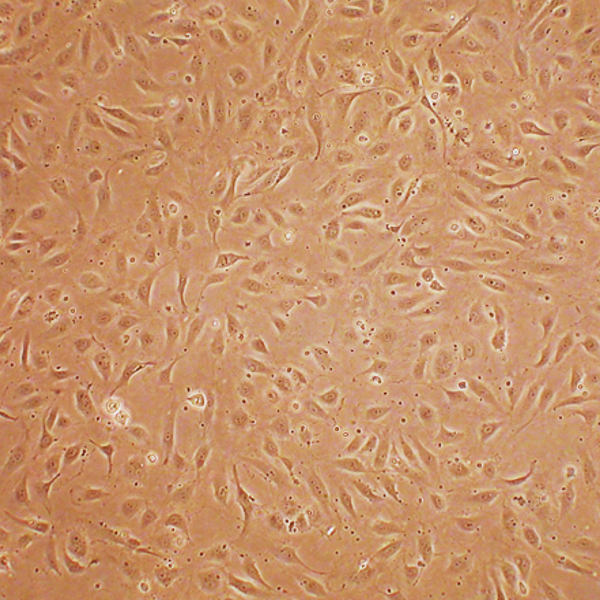Human Aortic Smooth Muscle Cells: Type 2 Diabetes: HAOSMC-T2D
Description
Human Aortic Smooth Muscle Cells (HAOSMC) provide an excellent model system to study all aspects of cardiovascular function and disease, especially those related to mechanisms of hyperplasia and hypertrophy of intimal smooth muscle cells leading to vascular occlusion in atherosclerosis and stent restenosis.
HAOSMC from Cell Applications, Inc. have been utilized in dozens of research studies, for example, to understand:
- Cytokines and growth factor signaling pathways implicated in the molecular regulation of smooth muscle cell proliferation, migration, and overall vascular function
- Hyperglycemia-related risk factors for atherosclerosis in diabetes patients, as well as effects of ethanol on vascular calcification
- ECM deposition and its role in cardiovascular health, repair of damaged vasculature and successful tissue engineering
- Mechanisms and effects of mechanoregulation on proliferation and function of smooth muscle cells
- Advanced stent technology, including novel surface materials
- Drug and gene delivery systems
- Restenosis and other occlusive vasculopathies
Characterization: Positive for smooth muscle cell specific alpha-actin expression. Type 2 Diabetes (T2D) Cellular Disease Models For T2D research and drug discovery, Cell Applications offers multiple cell types, isolated from donors where genetics and lifestyle factors contributed to insulin resistance and high blood sugar levels.
Details
| Tissue | Human aorta from donor with Type 2 Diabetes (T2D) | |
|---|---|---|
| QC | No bacteria, yeast, fungi, mycoplasma, virus | |
| Character | Smooth muscle specific α-actin positive | |
| Bioassay | Attach, spread, proliferate in Growth Med | |
| Cryovial | 500,000 HAOSMC (2nd passage) frozen in Basal Medium w/ 10% FBS, 10% DMSO | |
| Kit | Croyvial frozen HAOSMC-T2D (354T2D-05a), Growth Medium (311-500), Subcltr Rgnt Kit (090K) | |
| Proliferating | Shipped in Gr Med, 3rd psg (flasks or plates) | |
| Doublings | At least 16 | |
| Applications | Laboratory research use only (RUO). Not for human, clinical, diagnostic or veterinary use. |
FAQs
Need More Help?
Visit our comprehensive FAQ page for detailed answers to common questions.
Need More Help?
Visit our comprehensive FAQ page for detailed answers to common questions.
Primary Cell FAQs